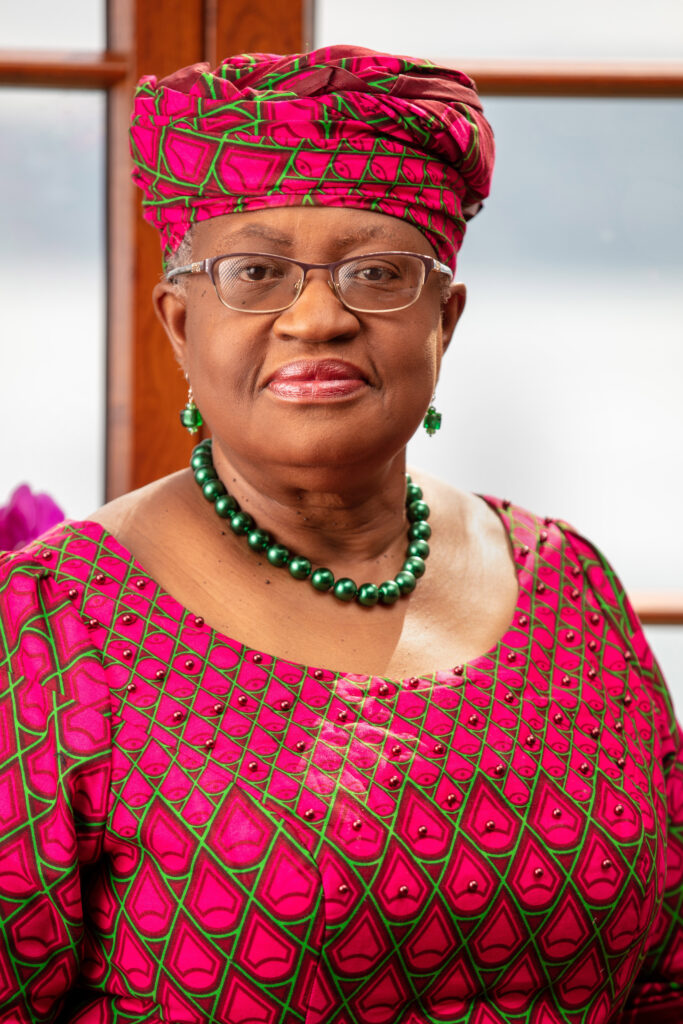A Trailblazer in Global Economics and Development: Valery Emeson on Dr. Ngozi Okonjo-Iweala for #BHM

Who is she?
Dr Ngozi Okojo-Iweala is a world-class Economist often referred to as “DG” due to her role as the Director General of the World Trade Organisation (WTO). She was born on June 13, 1954, in Ogwashi-Ukwu, Eastern Nigeria, to her professor father and physician mother. Her parents’ value for education and public service instilled in her a passion for learning and a commitment to societal betterment. Ngozi Okonjo-Iweala had a good education from attending Queen’s School in Enugu for her secondary education and later earning her bachelor’s degree in economics from Harvard University in 1976. In a recent webinar (2024), she shared that she almost went to the University of Cambridge for her degree. She obtained a Ph.D. in Regional Economics and Development from the Massachusetts Institute of Technology (MIT) in 1981, where her research focused on development economics; a field she would come to influence profoundly.
Her barrier-breaking and trailblazing career
Ngozi Okonjo-Iweala, like many women, had to juggle work and family life. She is married to a neurosurgeon with whom she has four children. This could not have been easy, especially as she had lived most of her life between Nigeria and America. Her personal journey, marked by resilience and an unwavering commitment to public service, continues to inspire many around the world. Okonjo-Iweala’s career at the World Bank spanned over two decades, beginning in 1982. She rose through the ranks to become Managing Director, the second-highest position in the institution. Her tenure was marked by significant contributions to projects in the areas of economic policy, trade, infrastructure, and governance, particularly in the developing world. She played a pivotal role in overseeing initiatives aimed at poverty reduction and improving living standards in underprivileged regions. In March 2021, Ngozi Okonjo-Iweala became the first woman and the first African to hold this position. Her appointment came at a critical time for the global trading system, which faced challenges from protectionism, trade wars, and the impacts of the COVID-19 pandemic. At the WTO, she has been a vocal advocate for equitable vaccine distribution and has worked to reform the organisation to better address contemporary global trade issues.
In addition, Dr. Ngozi Okonjo-Iwela served as a minister in Nigeria (one of the most populous countries in Africa). Okonjo-Iweala made history as the first woman to serve as Nigeria’s Minister of Finance, a position she held twice (2003-2006 and 2011-2015). Her tenure was noted for several landmark achievements, including:
- Implementing economic reforms that stabilised the Nigerian economy.
- Securing a debt relief deal with the Paris Club in 2005, which led to the cancellation of $18 billion of Nigeria’s debt and an overall reduction of the country’s external debt burden.
- Enhancing transparency and accountability in government finances, which included the introduction of the Government Integrated Financial Management System (GIFMIS) and the Treasury Single Account (TSA).
Other Leadership Roles and Contributions
Apart from her roles in government and international organisations, Okonjo-Iweala has served on numerous boards and advisory groups, including:
- Chairing the Board of Gavi, the Vaccine Alliance, where she has been instrumental in efforts to ensure global access to vaccines.
- Serving on the boards of Standard Chartered Bank, Twitter, and the African Risk Capacity (ARC).
- Being a member of several global commissions and advisory panels on economic and development issues.
Awards and Recognitions
Dr. Okonjo-Iweala’s contributions have been recognised globally. She has received numerous awards and honours, such as:
- Inclusion in Time magazine’s list of the 100 most influential people in the world.
- Forbes’ list of the World’s 100 Most Powerful Women.
- The Global Finance Minister of the Year award from Euromoney in 2005.
- David Rockefeller Bridging Leadership Award 2014
Legacy
Dr. Ngozi Okonjo-Iweala’s legacy is one of the breaking barriers and championing reforms that foster economic stability, transparency, and development. Her work at the WTO, the World Bank, and in Nigeria underscores her dedication to creating a more equitable global economic landscape, making her one of the most influential economic leaders of her time.
Valery Emeson is a Lecturer in Business Management at ARU Peterborough

